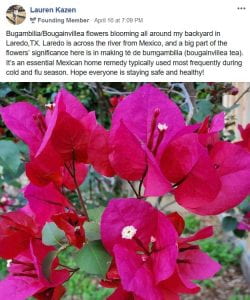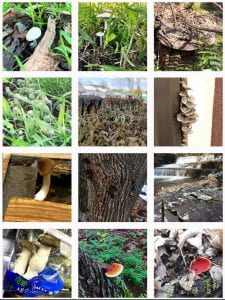-Magdalen Lindeberg

Moving to online instruction has presented significant challenges for Cornell instructors, particularly those teaching labs or other classes that include hands-on experiential learning. Experiments in plant transformation and plant physiology, demonstrations for Mushrooms, Molds, and More, field trips for Hands-On Horticulture for Gardeners – How does one adapt these course elements for remote teaching? Quoted in a recent Cornell Chronicle article, Sue Merkel, associate director of the Office of Academic Programs in CALS and a senior lecturer in microbiology, advises instructors to “design backward” and focus on the goals of the course rather than trying to replicate specific in-class experiences.
Adopting this strategy, SIPS senior lecturer Tom Silva has shifted the focus of his lab classes to analysis and concept synthesis. Students taking Plant Physiology Lab (PLBIO 3421) are now provided with data sets to analyze and generate reports. In Functional Plant Biology (PLSCI 1420), projects have been re-designed to emphasize concept synthesis and creation of presentations to “teach the material back”.
Matthew Willmann, Director of the Plant Transformation Facility, co-teaches Molecular Biology and Genetic Engineering of Plants Lab (PLBIO 3431) with SIPS professor Jian Hua. Ordinarily the course includes several experiments that are carried out over the course of an entire semester. “Jian and I have changed the class be more discussion based, focusing on the different experiment they were doing.” They have also added a journal club to help students learn about some of the latest techniques in plant biotechnology, some so new that they could not be incorporated into the lab course regardless.
In classes like Hand-On Horticulture for Gardeners (PLHRT 1102), students are better able to make observations and generate their own data. SIPS professor Marvin Pritts guides students in the creation and design of experiments using plant materials to which they have access in their current locations.

With over 350 enrolled students now scattered around the globe, Magical Mushrooms, Mischievous Molds (PLPPM 2010) and its companion class Mushrooms, Molds, and More (PLPPM 2013) present special challenges. Using a combination of prerecorded lectures, live lectures, and videos of demo labs posted on Canvas, SIPS faculty member Kathie Hodge, teaching support specialist Mary McKellar, and their band of teaching assistants have created instructional materials that can be accessed by students in different time zones and with more limited internet access.
Instructors are also employing social media as a fun way to nurture community and encourage scientific observation among dispersed students. Hodge and McKellar have also created a Cornell Fungi Instagram (@cornellfungi) where students post photos of fungi they encounter. The Cornell Plant Lovers Facebook group, created by Pritts, provides a social hub where Plant Sciences students and others can ask questions and share seasonal changes in the plant world where ever they may be.
